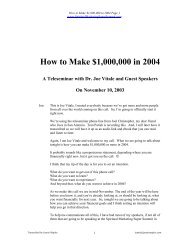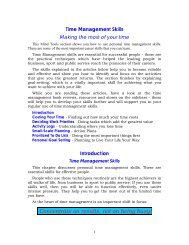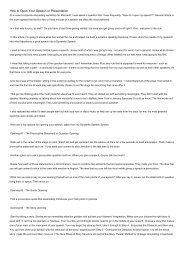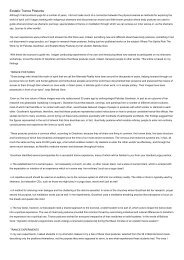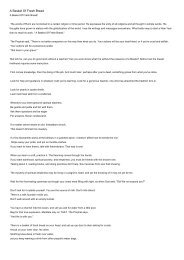Executive Coaching - A Guide For The HR Professional.pdf
Executive Coaching - A Guide For The HR Professional.pdf
Executive Coaching - A Guide For The HR Professional.pdf
Create successful ePaper yourself
Turn your PDF publications into a flip-book with our unique Google optimized e-Paper software.
This is especially true if it is the leadership of a boss or a peer that<br />
is strengthened. Improvements in the morale of a group can occur.<br />
Individuals may be inspired to start on their own agendas for personal<br />
growth. <strong>The</strong> “return on investment” from successful coaching<br />
has the potential to be quite large.<br />
With this in mind, you should know how the business relationship<br />
will be defined and how value will be assessed. It will help you<br />
frame your questions and form your answers if you approach the<br />
endeavor as you would approach any business project. To the extent<br />
possible, there will be a clear set of goals and objectives, action plans<br />
with milestones, and a means of evaluating the outcome.<br />
Time Commitments<br />
<strong>Executive</strong> Breakaway Section 207<br />
.................................<br />
You and your coach will arrive at an understanding of the time commitments<br />
associated with the coaching. This will have been done<br />
in the contracting process as well as in your discussion on ground<br />
rules. Having a schedule and keeping to it are important aspects of<br />
the structure of the relationship. <strong>The</strong>y also are good predictors of a<br />
successful outcome. In today’s business environment, it is very easy<br />
to allow other events and meetings to crowd out your coaching time.<br />
It is common for urgent things to take priority over important<br />
things.<br />
Making changes in your leadership or interpersonal style is the<br />
kind of task that requires continuity. That’s why regular contact<br />
with the coach is important. Making these changes can be difficult,<br />
lonely work. Sticking to the schedule is a shared responsibility of<br />
both you and your coach, but slippage is much more often due to<br />
pressures on the client than on the coach.<br />
Do your best to take responsibility for maintaining the integrity<br />
of the coaching schedule, just as you would for any other business<br />
obligation. Sometimes the coach serves as a kind of conscience,<br />
<strong>Executive</strong> <strong>Coaching</strong>. Copyright © 2005 by John Wiley & Sons, Inc. Reproduced by<br />
permission of Pfeiffer, an Imprint of Wiley. www.pfeiffer.com






